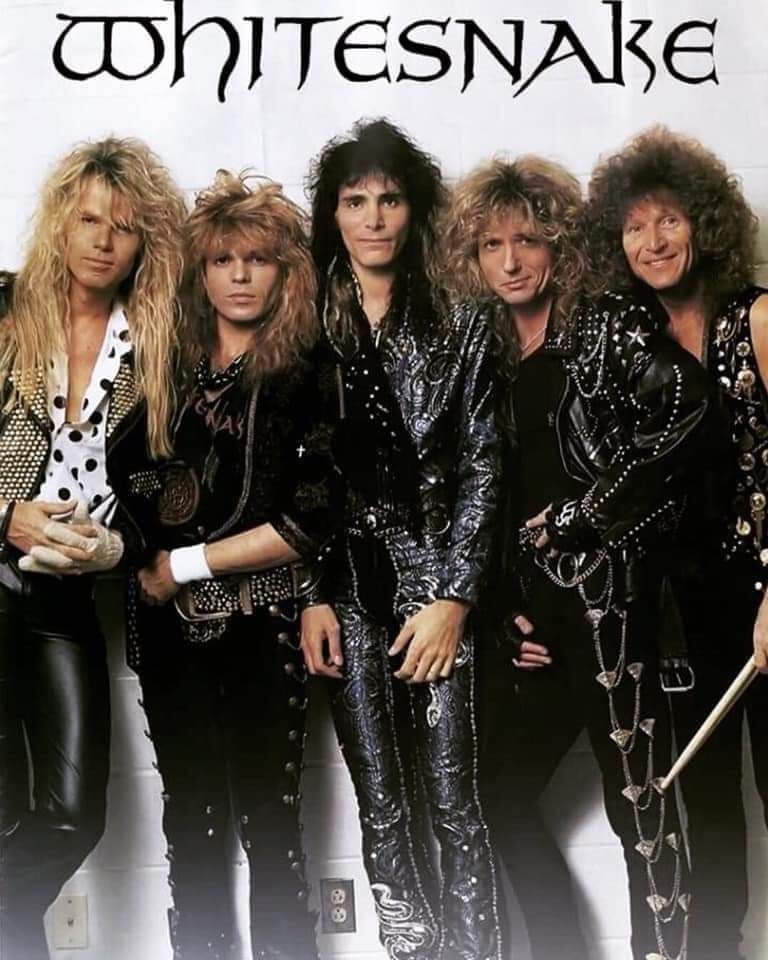Whitesnake

| Origin | London, England |
|---|---|
| Genres |
|
| Years active |
|
| Labels |
|
| Spinoffs |
|
| Spinoff of | Deep Purple |
| Members |
|
Whitesnake are an English rock band formed in London in 1978. The group was originally put together as the backing band for singer David Coverdale, who had recently left Deep Purple. Though the band quickly developed into their own entity, Coverdale is the only constant member throughout their history.
Following the EP Snakebite in 1978, Whitesnake released the albums Trouble (1978) and Lovehunter (1979), which included the live staples “Ain’t No Love in the Heart of the City” and “Walking in the Shadow of the Blues”. Whitesnake soon began to make a name for themselves across the UK, Europe and Japan, with their subsequent albums Ready an’ Willing (1980), Live… in the Heart of the City (1980), Come an’ Get It (1981) and Saints & Sinners (1982) all reaching the top ten on the UK Albums Chart. By the mid-1980s, Coverdale had set his sights on North America, where Whitesnake remained largely unknown. With the backing of American label Geffen Records, Whitesnake released Slide It In in 1984, featuring the singles “Love Ain’t No Stranger” and “Slow an’ Easy”, which furthered the band’s exposure through heavy airplay on MTV. In 1987, Whitesnake released their eponymous album 1987, their biggest success to date, selling over eight million copies in the United States and spawning the hit singles “Here I Go Again”, “Is This Love” and “Still of the Night”. Whitesnake also adopted a more contemporary look, akin to the Los Angeles glam metal scene.
After releasing Slip of the Tongue in 1989, Coverdale decided to take a break from the music industry. Aside from a few short-lived reunions related to the release of Greatest Hits (1994) and Restless Heart (1997), Whitesnake remained mostly inactive until 2003, when Coverdale put together a new line-up to celebrate the band’s 25th anniversary. Since then Whitesnake have released four more studio albums Good to Be Bad (2008), Forevermore (2011), The Purple Album (2015), Flesh & Blood (2019) and toured extensively around the world.
Whitesnake’s early sound has been characterized by critics as blues rock, but by the mid-1980s the band slowly began moving toward a more commercially accessible hard rock style. Topics such as love and sex are common in Whitesnake’s lyrics, which make frequent use of sexual innuendos and double entendres. Whitesnake have been nominated for several awards during their career, including Best British Group at the 1988 Brit Awards. They have also been featured on lists of the greatest hard rock bands of all time by several media outlets,[1][2] while their songs and albums have appeared on many “best of” lists by outlets, such as VH1 and Rolling Stone.



